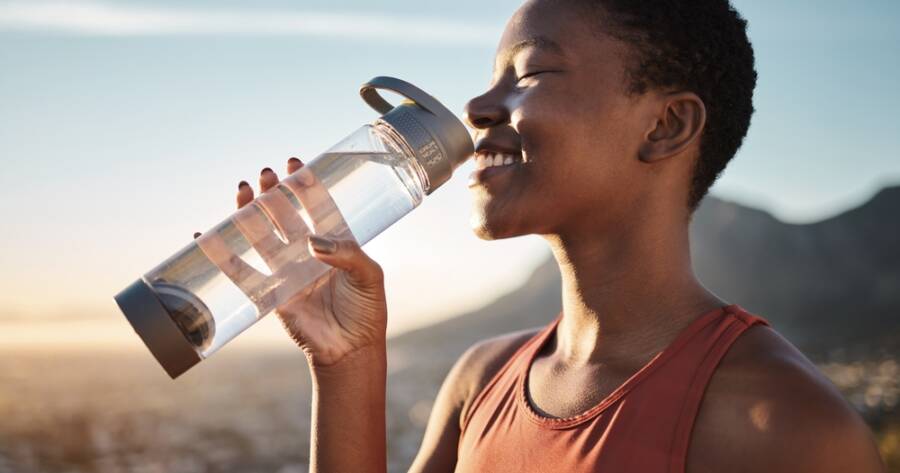Water is essential for every function in your body, from regulating temperature to supporting digestion and circulation. Even mild dehydration can lead to fatigue, headaches, and reduced focus. Staying hydrated keeps your energy levels up, helps your skin glow, and supports overall health. While drinking water is the most obvious way to stay hydrated, there are plenty of other ways to keep your body replenished. Small daily habits can make a big difference in keeping you feeling your best.
Don’t Wait Until You’re Thirsty to Drink
Thirst is a late signal that your body is already slightly dehydrated. By the time you feel thirsty, you may have already lost essential fluids needed for energy, digestion, and temperature regulation. Instead of waiting for thirst to hit, make it a habit to sip water throughout the day. Carry a reusable water bottle, set reminders on your phone, or associate drinking water with routine activities like meals or breaks.
If you’re active, live in a hot climate, or drink caffeine regularly, you may need even more hydration. Developing the habit of drinking before you feel thirsty helps keep your body functioning optimally and prevents dehydration-related fatigue, dizziness, and headaches.
Flavor Your Water for Better Hydration
If plain water feels boring, adding natural flavors can make it more enjoyable. Infusing water with fruits, herbs, or even a splash of juice can encourage you to drink more throughout the day. Lemon, cucumber, berries, mint, and ginger are great additions that enhance taste while offering extra nutrients.
Sparkling water is another alternative for those who prefer carbonation. Herbal teas, such as chamomile or hibiscus, provide hydration while adding variety. Be mindful of sugary flavored drinks, as they can contribute to dehydration instead of helping it. Finding a way to make water more appealing ensures that you meet your daily hydration needs effortlessly.
Don’t Forget About Water-Rich Fruits and Vegetables
Hydration doesn’t come from drinks alone! Many fruits and vegetables have a high water content that helps keep you hydrated. Cucumbers, watermelon, strawberries, oranges, celery, and lettuce are packed with water and essential vitamins. These foods not only hydrate but also provide fiber and antioxidants that support overall health.
Soups, smoothies, and yogurt are other hydrating options that contribute to fluid intake. Incorporating water-rich foods into your diet is especially beneficial if you struggle to drink enough water throughout the day. Plus, these foods can help balance electrolytes and prevent dehydration without needing to consume large amounts of liquid at once.
Add Electrolytes for Better Hydration
Water alone isn’t always enough! Electrolytes like sodium, potassium, and magnesium help your body retain fluids and stay balanced. If you sweat a lot, exercise frequently, or feel lightheaded even after drinking water, you may need to replenish electrolytes. Coconut water, electrolyte powders, or drinks (with minimal added sugar!) can help restore balance.
Natural sources like bananas, avocados, and leafy greens also provide essential minerals. However, it’s best to avoid highly processed sports drinks, as they often contain excessive sugar and artificial ingredients. Maintaining a good balance of fluids and electrolytes prevents muscle cramps, fatigue, and dehydration, especially during hot weather or after intense activity.
Signs You’re Not Hydrated Enough
Dehydration can sneak up on you, so recognizing the signs early is important. Fatigue, dizziness, dry mouth, headaches, and dark-colored urine are common indicators that your body needs more water. Other symptoms include muscle cramps, difficulty concentrating, and dry skin. If you notice persistent thirst, chapped lips, or infrequent urination, your body is signaling dehydration.
Chronic dehydration can lead to digestive issues, kidney stones, and long-term health concerns. The simplest way to check hydration levels is by looking at urine color. Light yellow is ideal, while dark yellow or amber suggests you need more fluids. Paying attention to these signs can help you stay ahead of dehydration before it affects your health.
Why Staying Hydrated Is So Important
Every cell in your body relies on water to function properly. Hydration supports digestion, circulation, brain function, and temperature regulation. It helps transport nutrients, flush out toxins, and keep joints lubricated. Proper hydration also improves skin health, energy levels, and mood.
When your body doesn’t get enough water, it has to work harder to perform basic functions, leading to exhaustion and discomfort. Long-term dehydration can contribute to kidney issues, constipation, and even cognitive decline. Drinking enough fluids each day ensures that your body remains strong, energized, and well-balanced. Making hydration a daily priority is one of the simplest ways to boost overall health.
Make Hydration a Daily Habit
Staying hydrated is one of the simplest yet most powerful ways to support your overall health. From boosting energy levels to improving digestion and brain function, water plays a crucial role in keeping your body running smoothly.
By drinking water regularly, incorporating hydrating foods, and balancing electrolytes, you can prevent dehydration and feel your best every day. Small habits, like carrying a water bottle or adding natural flavors, can make hydration effortless. Prioritizing water intake now will help you stay energized, focused, and healthy for the long run.

